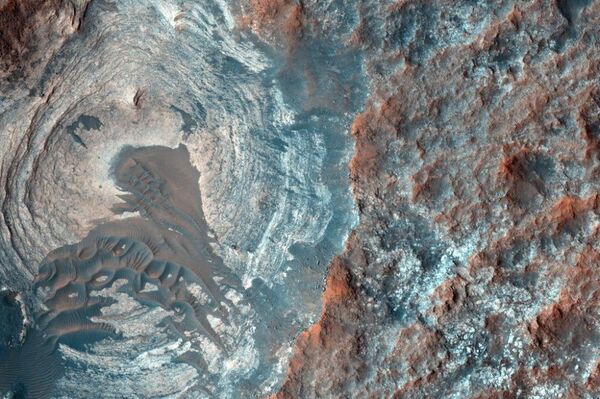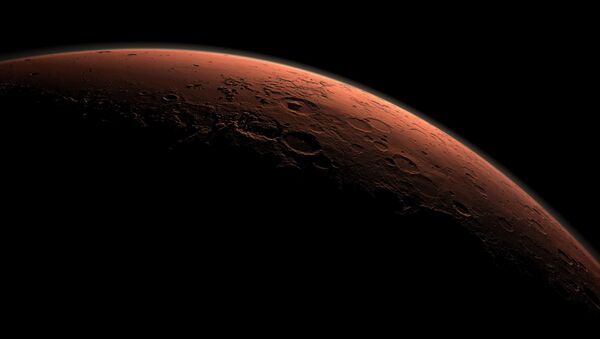MOSCOW (Sputnik) — The study, published Friday in the Science Advances magazine, warned of a new hurdle for the ambitious mission that seeks to put humans on the red planet in the 2030s.
"Our data indicate an unexpected and unique susceptibility of the central nervous system to space radiation exposure, and argue that the underlying radiation sensitivity of delicate neuronal structure may well predispose astronauts to unintended mission-critical performance decrements," the study said.
Neuroscientists from universities of California and Nevada, in the US, said they tested mice that were exposed to a beam of charged particles. Unlike control subjects, irradiated mice were significantly less curious about their surroundings and became more easily confused, only six weeks after the exposure.
"The persistent reduction in the ability of irradiated animals to react to novelty after such low-dose exposures suggests that… particles can elicit long-term cognitive decrements in learning and memory," the authors wrote.
The study showed that astronauts' encounter with high-energy particles could drastically reduce the number of dendritic synapses in their brain, which would inevitably affect their ability to perform cognitive tasks.

To reduce this effect, NASA will have to think of special shielding for the spacecraft, Limoli said, although there is no escaping radiation.
NASA is not the only agency planning to set foot on the red planet. The Dutch group, Mars One, is already interviewing future Mars colonists who, it hopes, will be permanently resettled to this planet in the 2020s.



